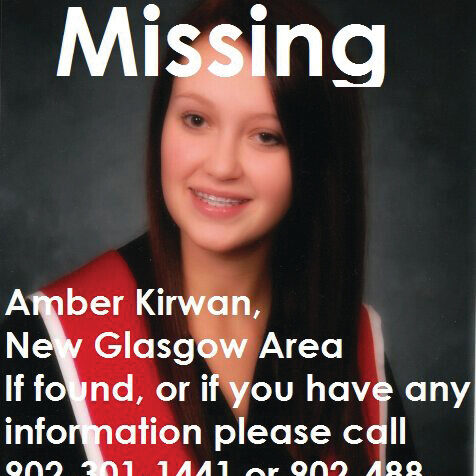
Heresay misguides in Amber Kirwan case
It’s 5:30 a.m. on Oct. 10, more than 24 hours since 19-year-old Amber Kirwan was last seen leaving a New Glasgow Dooley’s en route to meet her boyfriend. My girlfriend and I are listening attentively to the Pictou County police scanner and staring at Facebook, waiting for updates regarding her disappearance from anybody. That morning there had been reports that Kirwan was seen at a local Needs Convenience store, and that there was a very strong lead as to her whereabouts. Finally, sore eyes close for the night with high hopes.
A local New Glasgow newspaper published the first news story about her disappearance the following morning. One thing immediately caught my eye: a small paragraph stating there were false reports of Kirwan being sighted at Needs in the early hours of the morning. I felt my high hopes completely implode, and had to ask one question: Is this what journalism has become?
As journalism and the Internet become more integrated, it was only a matter of time before this idea of citizen journalism would become popular. Journalists cannot be everywhere, so what better way to hear the information than from the people who are living it?
Though everyone wants to hear the immediate aftermath of a news story, we give little regard to the fact that the people we are getting it from are so emotionally invested in the event that their opinions are skewed. However, we find ourselves listening to news posted on Facebook from the people you had one class with in high school, taking their reports as the absolute truth over information published in a newspaper or broadcast on television.
I have a better name for this so-called “citizen journalism”: gossip. There is a fundamental difference between gossip and journalism, and that is proof. Gossip is the passing on of information; journalism is the passing on of accurate information. People can say whatever they want on social media websites (within reason) and there is really no punishment.
We ignore the news in favour of expressing our views through social media. And that is not journalism.
With the Amber Kirwan investigation, it has gone so far that the New Glasgow Police Department has changed their radio frequency so people cannot listen to the scanner and post hearsay on Facebook, which they have also told the public not to draw conclusions from.
So tonight as I go to sleep – hopefully at a more manageable hour – I will not fall asleep with sore eyes from my laptop’s screen while checking Facebook or Twitter. They will be sore from watching the evening news.







